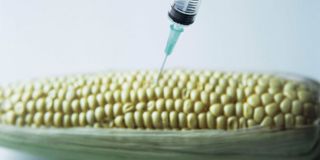Let’s debate GMOs, but be wary of agro-colonialism

Optimists cite Genetically Modified Organisms (GMOs) as the final solution to food insecurity.
As the Earth’s population hits the 8th billionth mark on November 15, technologies like genetic modification come into sharp focus.
To population control proponents, the globe doesn’t have enough food for the ballooning population.
But optimists cite Genetically Modified Organisms (GMOs) as the final solution to food insecurity.
Still, few innovations polarise us like GMO. Many people remain unconvinced, despite demonstration of its benefits and lack of concrete evidence of harm to human health.
The anti-GMO argument is weak. It goes like this: you cannot interfere with nature: So ban it. But we have been interfering with nature for millennia. Think of cross and selective breeding of animals and crops to develop desirable traits. These methods take years and are inefficient.
The GM technology is also an attempt to improve essential traits in organisms, such as drought resistance or fighting disease. Scientists insert enabling genes into an organism, often from a different species.
This is specific and much faster. And this is how we got some Covid-19 vaccines in record time.
Another anti-GMO argument is that no one is sure about the future effects of the technology on health: so ban it! But science tries to solve current problems.
While they try to forestall any negative spillovers into the future, future generations will use advanced science to solve the problems as they will appear in their time. After all, no one knew for sure the effects of paracetamol and penicillin when they were invented.
Most likely, anti-GMO activists know these shaky arguments. But the multinationals behind GMO have enough financial muscles to buy governments and fighting them is no small thing.
It is easier to demonise the technology and scare consumers.
Still two questions persist: Are GMOs safe? Is there a conspiracy by multinational corporations who own the technology to colonise global agriculture through patented seeds and inputs?
On safety, genetically modified tomato was approved for human consumption 38 years ago. Other foods have since been introduced over the years and no one has developed an extra head by eating them.
The only known study ‘proving’ the negative effects of GMOs on health was by Prof Gilles-Éric Séralini. This work has been cited in banning GMOs. But the publisher retracted it after it was found scientifically invalid. Apparently, in his study, Prof Séralini sampled the wrong rats, known as the Sprague-Dawley, which critiques say are naturally prone to tumours in old age.
There is room for more studies on the possible effects of this technology on human health.
No technology can be 100 percent safe. Human enquiry is forever evolving.
The real problem with this technology is the spectre of a few multinationals owning the GMO patents. This is the implicit reason its opponents are so agitated in their campaigns, more so because some of GMO companies are well known American companies.
And be very worried.
The global seed sector and the GMO technology are dominated by three companies: the US agribusiness giant DuPont/Pioneer Hi-Bred, Bayer/Monsanto (Germany) and Syngenta (China).
Note that these companies have agrochemical arms and are likely to demand the use of specific chemicals to grow their patented seeds.
GMO technology has many advantages for African countries facing drought, crop loss from pests and diseases. But GMO seeds are patented and companies will certainly require greater control on how farmers handle the seeds.
Simply, a company could require a grandmother to acquire a licence and contract to grow maize in a quarter acre plot in central Kenya. The farmers will neither own the seeds nor make decisions on when, where and if at all they should produce, a situation now referred to as ‘agro-colonialism’ by food activists.
Poor farmers have little bargaining power and risk margins. In India, the licence-contract model has in the past pushed farmers into debt cycles and suicide.
This is unsustainable. Small scale farmers and the public will naturally see it as a social-economic threat.
And indeed it is. In Africa, 80 per cent of seeds are distributed informally, preserved over the seasons and shared among neighbours. There is a strong food culture, weaving communities around seeds, planting and harvesting.
It worrying if powerful commercial interests use this technology to dismantle these social systems.
Seed businesses are powerful, and can influence governments to legislate against use of uncertified seeds. It is not scaremongering. In Kenya, we have the Crop Act that makes it illegal for anyone to use uncertified (read patent) seeds. It means that my grandmother can be prosecuted for doing what her community has done for centuries.
There is need for greater GMO regulation in Africa, otherwise it could turn out to be a bigger commercial conspiracy than we think. Certainly, the issue requires much more scrutiny, albeit to build public confidence. No one should be forced to adapt it. Eventually, GM products must be labelled so that consumers can make informed choices.
Analysts say the latent anti-corporate anger can be abated by involving local research and consumer organisations and farmers in the GMO research. That way, local stockholders could have more control on the technology and greater sense of ownership.
Otherwise, the GMO wars will continue to overshadow the significance of the technology to Africa.
There are important issues about feeding and reducing poverty.
Africa needs assurance on GMO: Despite the scepticism, the technology is irreversible.
Dr Mbataru teaches public policy at Kenyatta University. [email protected]





